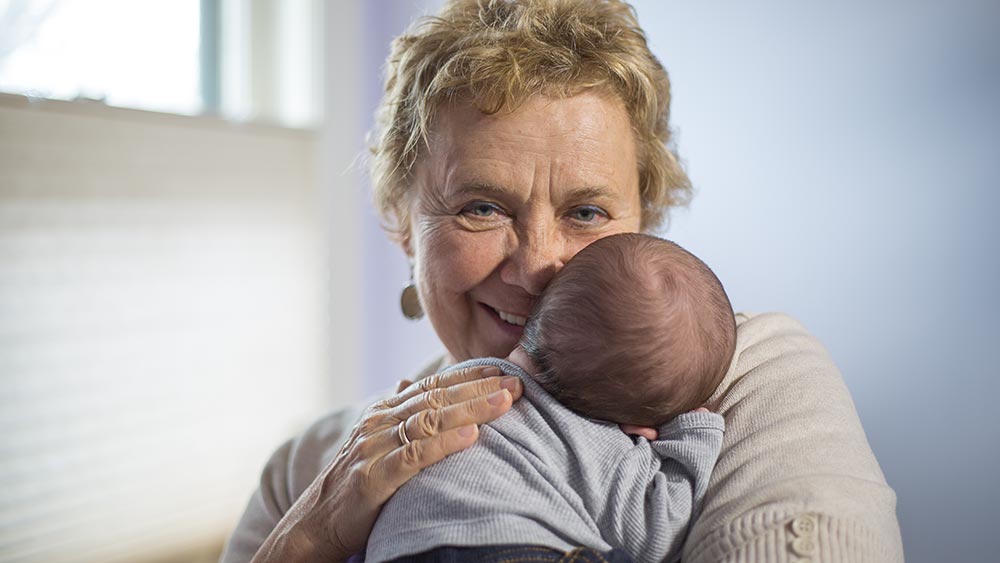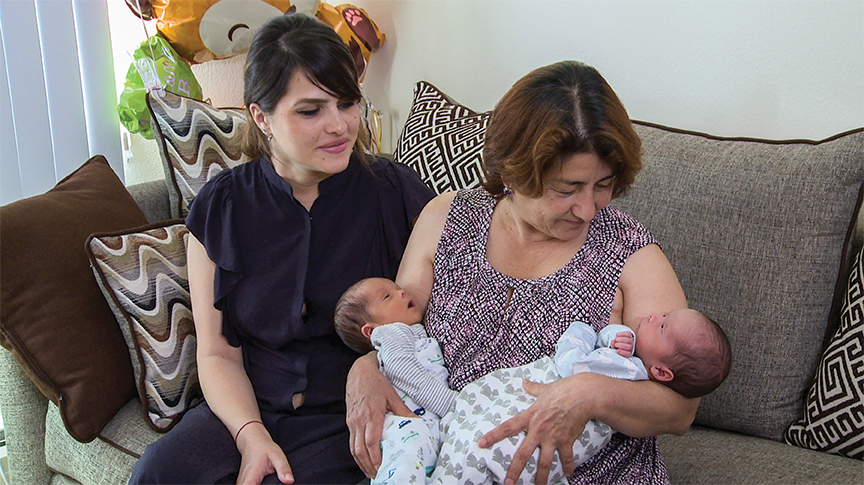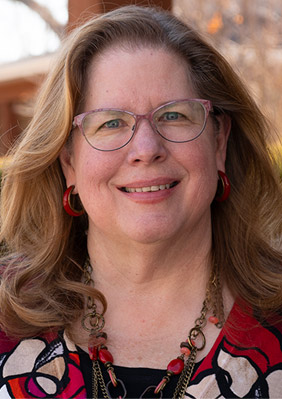How to Create a Grandparenting Class at Your Hospital or Facility
Quote from Jessa VonFeldt on January 19, 2023, 10:12 amWritten by Debbie Young, MSL, ICCE, ICBD, LCCE, CLC; Customer Relations Manager at InJoy
Why Offer Grandparenting Classes
Teaching the current birthing generation is an honor for most educators. The students are ready to learn all the evidence-based information to make the most of their birth, breastfeeding, and new parenting experiences.
When the expectant parents bring that newly learned info to their extended family, especially their parents, sometimes it is not well-received. Their parents possibly did things much differently when they were pregnant and bringing up their newborns and children. Sometimes this difference in opinion puts the family at odds. It can make the future grandparents defensive, thinking that their children believe they did things wrong or their opinions do not matter.
I know this happens. When I was taking a childbirth class when I was pregnant, my mother broke down and said she had tried to do everything right and hoped not to be blamed now because she did not know enough back then. Of course, that opened the opportunity to sit down and discuss the differences between now and then. She needed reassurance that I was not blaming or shaming her for following the best practices of her day. It gave me the opportunity to share new information with her.
Every family has traditions and perspectives on childrearing, and postpartum recovery. How do you educate extended family members about best practices without offending them? Offering a grandparenting class at your facility or company might be the way to bridge the communication gap about the differences in scientific evidence, advancements, and practice between yesteryear and now.
Introducing grandparenting classes in tandem with your other prenatal classes—and presenting the same evidence-based information—helps all parties learn the same information, creating unity and decreasing conflict and the sharing of misinformation. Assisting grandparents to understand the broader concepts of how they can support the new parents can be so beneficial to them and for their grandchildren.
By providing a grandparenting class, information is presented from a professional, which is often easier than hearing it from their children, reducing guilt, self-doubt, or regret. Instead, current information is shared from an objective source, which promotes unity. That is one reason why grandparents’ classes are so valuable.
How to Get Started
You may be thinking how you will host a class, especially after the pandemic. Classes can be offered monthly or every other month. For those who can’t make it into your one session class, you can refer them to an online eClass they can take at their leisure. InJoy offers an online class that you can brand to your hospital and distribute—an easy way to add the topic without overextending your resources.
While many grandparenting classes are held in-person, the use of remote eClasses remains popular as it fits into the students’ schedules. Grandparents who are in another state can take the class and feel more involved in the upcoming birth of their grandchild. In-person classes suit those that love being in-person to learn and chat. Some comments from evaluations at one facility include, “Well organized,” “Very informative,” and “I didn’t know what I didn’t know, thanks for the info”.
To get the classes off to a good start, work with your marketing department to promote the grandparenting class and other prenatal classes. Marketing might hang a poster showing a grandparent or grandparents and baby in OB and Peds offices to remind patients to encourage their parents to take the class! When it is time for the class, use short video clips to spark conversation, or a PowerPoint to provide structure. InJoy offers both, which can be especially helpful if you are starting a program from scratch.
In addition to the video and PowerPoint, have some games, demonstrations, small group discussions, and time for questions. Like any student, grandparents have various learning style preferences so try to include something for everyone! For example, you might have physical examples of things such as car seats with dolls to show proper ways to safely put the baby in the car seat. You might have a bath station and cover current info on bathing. For infant safety discussion, you might use a photo onscreen of a home before infant safety is put in place and have grandparents talk about what needs to change. The seating in your classroom might look different based on space, but one educator shared with us that she can take up to 16 people (8 couples). She uses tables and chairs for their comfort and note taking.
What to Cover
When you host a grandparenting class, you will find that grandparents have many questions so be ready to make changes to your agenda on the fly! No group of students are the same. One group may be all working grandparents who will do very little daily care, while in another group, some may be babysitting often and will need many daily care tasks explained.
In contrast, some will be out of town, so learning how to bond with their grandchild, and support their own child at a distance will be important. Some might attend the birth and will need to know what to expect at the hospital, postpartum care, and how to support the new parents, as well as the new baby.
Safe sleep is always an important topic, as is tummy time, especially for the generation of parents who were taught to put their baby to bed on their tummy. Explaining Back to Sleep and tummy time can help them understand and accept these new recommendations. Information about swaddling (or not), holding/wearing baby, burping baby, and the changes in breastfeeding research and practice are also important topics that bring up a lot of questions if this is different from how the grandparent did these things in the past.
Your facility or program might also offer other classes that will interest the new grandparent, like car seat safety, CPR, infant and child safety, and postpartum care. Be sure to refer them to those classes, so they can learn even more if they want a deeper dive. You might also refer them to sites where they can learn more about what current research says on topics of interest to them. Be sure to talk about trusted sources so they find science-based info.
In Conclusion
So, is it worth the effort? YES.
We have had feedback from a few hospitals that are currently holding both in-person and online classes. While many students are eager to get back into the classroom for live instruction, the use of remote eClasses remains popular as it conforms to fit into the students’ schedule. Grandparents who are in another state are able to take the class and feel more involved in the upcoming birth of their grandchild.
Educating the entire family is part of patient-centered care. By providing evidenced-based, current best practices to all members of the family you can ensure that the new baby gets the best start. Plus, by educating the extended family about postpartum recovery, your families will learn how to make sure the new parent is cared for and remains safe and healthy.
Grandparents want to help—not just the new baby—their baby! This class will empower them and help them feel involved every step of the way.
Grandparents are important to grandchildren. That is probably why we call them “grand” parents! The role of a grandparenting class is to help them become comfortable, knowledgeable, and confident in what they offer to the parents and grandchildren.
Now, isn’t that GRAND!
- - - - - - - - - - - - - - - - - - - - - - - - - - - - - - - - - - - - - - - - - - - - - - - - - - - - - - - - - - - -
Related Products from InJoy:
Understanding Grandparenting eClass
Understanding Grandparenting PowerPoint Class
Understanding Grandparenting Video Program
Debbie Young, MSL, ICCE, LCCE, CLC, ICBD, is the Customer Relations Manager at InJoy. Working with families as an educator and doula since 1987 and after using InJoy products in her work since 1994, Debbie joined the InJoy team in 2013. She continues to be involved with families as a doula and a childbirth educator on a part-time basis. She teaches, writes and speaks on various birth, postpartum and building family subjects. Debbie is a past president of DONA International and was the Managing Editor for the International Doula for eight years.
She has a BA in Health Promotion: Women’s Health and a Master’s in Leadership through Grand Canyon University. Debbie has interviewed many leading professionals in the Maternal/Child field.
Written by Debbie Young, MSL, ICCE, ICBD, LCCE, CLC; Customer Relations Manager at InJoy

Why Offer Grandparenting Classes
Teaching the current birthing generation is an honor for most educators. The students are ready to learn all the evidence-based information to make the most of their birth, breastfeeding, and new parenting experiences.
When the expectant parents bring that newly learned info to their extended family, especially their parents, sometimes it is not well-received. Their parents possibly did things much differently when they were pregnant and bringing up their newborns and children. Sometimes this difference in opinion puts the family at odds. It can make the future grandparents defensive, thinking that their children believe they did things wrong or their opinions do not matter.
I know this happens. When I was taking a childbirth class when I was pregnant, my mother broke down and said she had tried to do everything right and hoped not to be blamed now because she did not know enough back then. Of course, that opened the opportunity to sit down and discuss the differences between now and then. She needed reassurance that I was not blaming or shaming her for following the best practices of her day. It gave me the opportunity to share new information with her.
Every family has traditions and perspectives on childrearing, and postpartum recovery. How do you educate extended family members about best practices without offending them? Offering a grandparenting class at your facility or company might be the way to bridge the communication gap about the differences in scientific evidence, advancements, and practice between yesteryear and now.
Introducing grandparenting classes in tandem with your other prenatal classes—and presenting the same evidence-based information—helps all parties learn the same information, creating unity and decreasing conflict and the sharing of misinformation. Assisting grandparents to understand the broader concepts of how they can support the new parents can be so beneficial to them and for their grandchildren.
By providing a grandparenting class, information is presented from a professional, which is often easier than hearing it from their children, reducing guilt, self-doubt, or regret. Instead, current information is shared from an objective source, which promotes unity. That is one reason why grandparents’ classes are so valuable.
How to Get Started
You may be thinking how you will host a class, especially after the pandemic. Classes can be offered monthly or every other month. For those who can’t make it into your one session class, you can refer them to an online eClass they can take at their leisure. InJoy offers an online class that you can brand to your hospital and distribute—an easy way to add the topic without overextending your resources.
While many grandparenting classes are held in-person, the use of remote eClasses remains popular as it fits into the students’ schedules. Grandparents who are in another state can take the class and feel more involved in the upcoming birth of their grandchild. In-person classes suit those that love being in-person to learn and chat. Some comments from evaluations at one facility include, “Well organized,” “Very informative,” and “I didn’t know what I didn’t know, thanks for the info”.
To get the classes off to a good start, work with your marketing department to promote the grandparenting class and other prenatal classes. Marketing might hang a poster showing a grandparent or grandparents and baby in OB and Peds offices to remind patients to encourage their parents to take the class! When it is time for the class, use short video clips to spark conversation, or a PowerPoint to provide structure. InJoy offers both, which can be especially helpful if you are starting a program from scratch.
In addition to the video and PowerPoint, have some games, demonstrations, small group discussions, and time for questions. Like any student, grandparents have various learning style preferences so try to include something for everyone! For example, you might have physical examples of things such as car seats with dolls to show proper ways to safely put the baby in the car seat. You might have a bath station and cover current info on bathing. For infant safety discussion, you might use a photo onscreen of a home before infant safety is put in place and have grandparents talk about what needs to change. The seating in your classroom might look different based on space, but one educator shared with us that she can take up to 16 people (8 couples). She uses tables and chairs for their comfort and note taking.

What to Cover
When you host a grandparenting class, you will find that grandparents have many questions so be ready to make changes to your agenda on the fly! No group of students are the same. One group may be all working grandparents who will do very little daily care, while in another group, some may be babysitting often and will need many daily care tasks explained.
In contrast, some will be out of town, so learning how to bond with their grandchild, and support their own child at a distance will be important. Some might attend the birth and will need to know what to expect at the hospital, postpartum care, and how to support the new parents, as well as the new baby.
Safe sleep is always an important topic, as is tummy time, especially for the generation of parents who were taught to put their baby to bed on their tummy. Explaining Back to Sleep and tummy time can help them understand and accept these new recommendations. Information about swaddling (or not), holding/wearing baby, burping baby, and the changes in breastfeeding research and practice are also important topics that bring up a lot of questions if this is different from how the grandparent did these things in the past.
Your facility or program might also offer other classes that will interest the new grandparent, like car seat safety, CPR, infant and child safety, and postpartum care. Be sure to refer them to those classes, so they can learn even more if they want a deeper dive. You might also refer them to sites where they can learn more about what current research says on topics of interest to them. Be sure to talk about trusted sources so they find science-based info.
In Conclusion
So, is it worth the effort? YES.
We have had feedback from a few hospitals that are currently holding both in-person and online classes. While many students are eager to get back into the classroom for live instruction, the use of remote eClasses remains popular as it conforms to fit into the students’ schedule. Grandparents who are in another state are able to take the class and feel more involved in the upcoming birth of their grandchild.
Educating the entire family is part of patient-centered care. By providing evidenced-based, current best practices to all members of the family you can ensure that the new baby gets the best start. Plus, by educating the extended family about postpartum recovery, your families will learn how to make sure the new parent is cared for and remains safe and healthy.
Grandparents want to help—not just the new baby—their baby! This class will empower them and help them feel involved every step of the way.
Grandparents are important to grandchildren. That is probably why we call them “grand” parents! The role of a grandparenting class is to help them become comfortable, knowledgeable, and confident in what they offer to the parents and grandchildren.
Now, isn’t that GRAND!
- - - - - - - - - - - - - - - - - - - - - - - - - - - - - - - - - - - - - - - - - - - - - - - - - - - - - - - - - - - -
Related Products from InJoy:
Understanding Grandparenting eClass
Understanding Grandparenting PowerPoint Class
Understanding Grandparenting Video Program

Debbie Young, MSL, ICCE, LCCE, CLC, ICBD, is the Customer Relations Manager at InJoy. Working with families as an educator and doula since 1987 and after using InJoy products in her work since 1994, Debbie joined the InJoy team in 2013. She continues to be involved with families as a doula and a childbirth educator on a part-time basis. She teaches, writes and speaks on various birth, postpartum and building family subjects. Debbie is a past president of DONA International and was the Managing Editor for the International Doula for eight years.
She has a BA in Health Promotion: Women’s Health and a Master’s in Leadership through Grand Canyon University. Debbie has interviewed many leading professionals in the Maternal/Child field.











